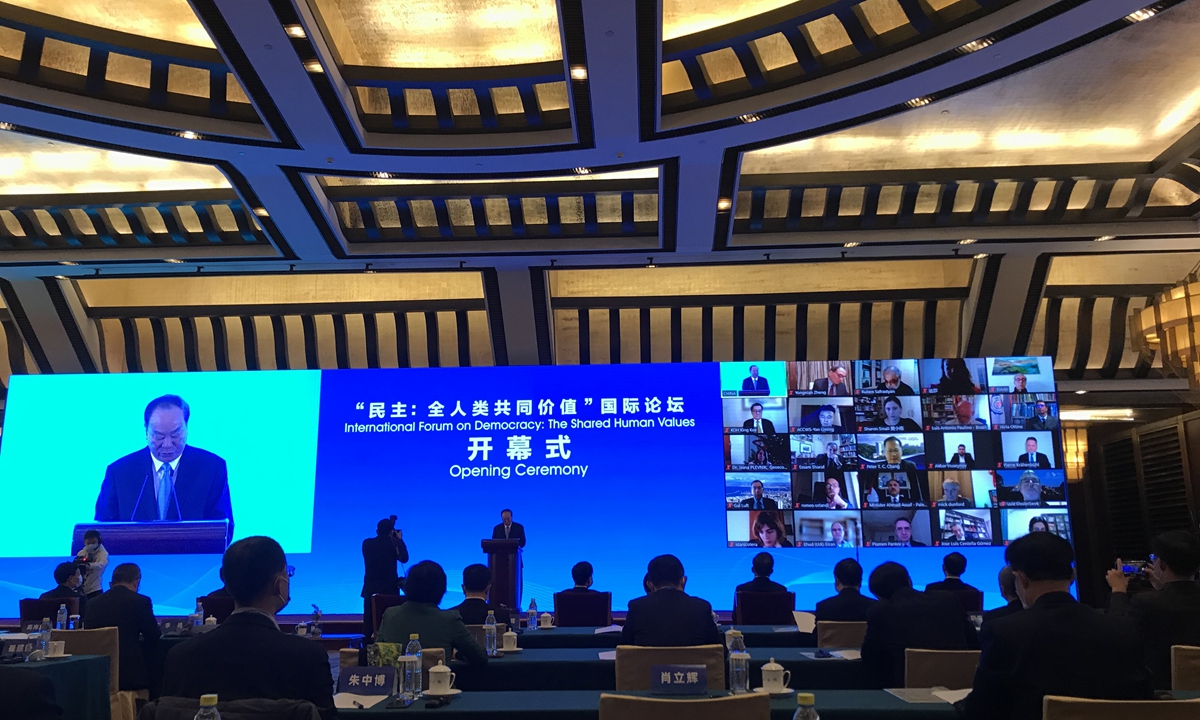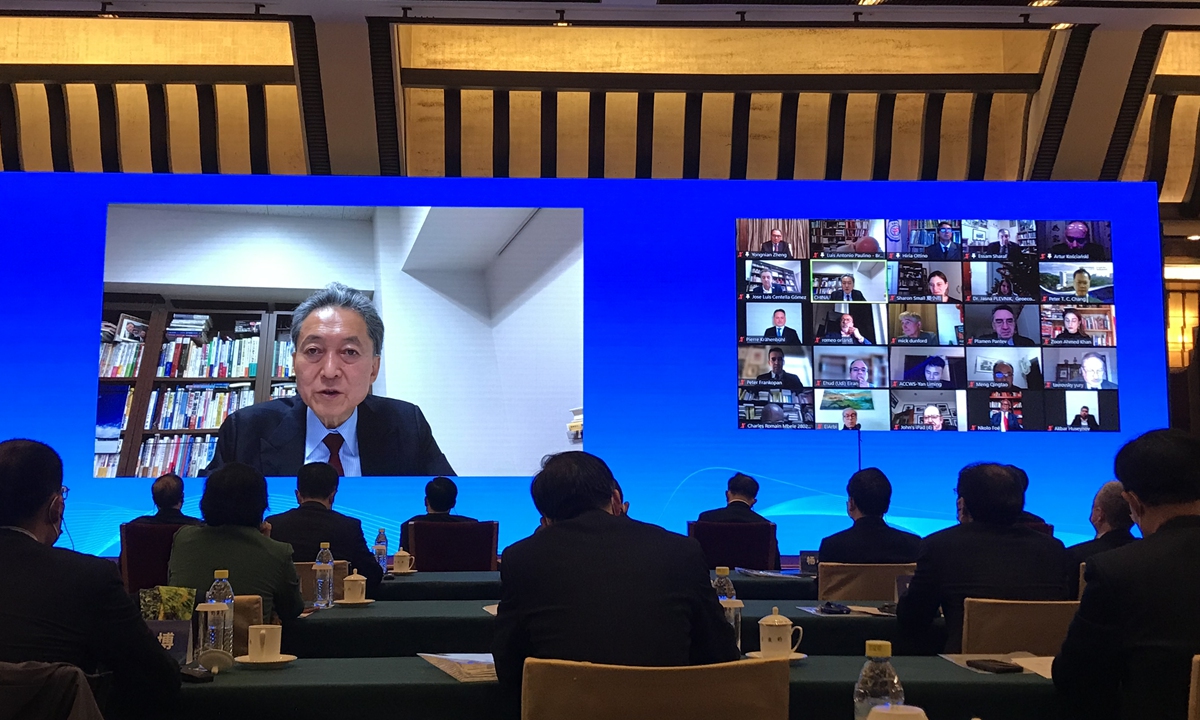
Huang Kunming, head of the Publicity Department of the Communist Party of China Central Committee, addresses the opening ceremony of International Forum on Democracy: The Shared Human Values on December 4, 2021 in Beijing. Photo: Zhang Han/GT
With the US is about to convene a so-called summit for democracy with the aim of maintaining hegemony and containing China, a two-day international forum on the shared human values of democracy kicked off on Saturday in Beijing, where guests from more than 120 countries and regions will engage in extensive discussions to break the monism and narrative hegemony in democracy.
In addition to addressing the origins, forms, effectiveness evaluation of democracy in separate sessions, keynote speakers at the opening ceremony of the forum shared the consensus that true democracy is characterized by dialogue, mutual respect and mutual learning, and emphasized the necessity of co-existence of different systems in a community committed to the shared future for mankind.
Huang Kunming, head of the Publicity Department of the CPC Central Committee, said while addressing the event there is no "one size for all" democracy. It can't be achieved in the same way for more than 7 billion people belonging to more than 2,500 ethnic groups across more than 200 countries and regions in the world.
Countries should respect each other, seek common ground while accommodating differences, exchange and learn from each other, promote unity instead of creating divisions, foster cooperation instead of creating confrontation, and enhance global well-being instead of bringing turmoil and chaos, Huang said.

Former Japanese Prime Minister Yukio Hatoyama delivers a keynote speech via video at the opening ceremony of International Forum on Democracy: The Shared Human Value on December 4, 2021. Photo: Zhang Han/GT
Former Japanese Prime Minister Yukio Hatoyama, said that this kind of forum had profound meaning when politicians, including some in Japan, hype up tensions in international relations amid the backdrop of China-US rivalry.
Some countries try to avoid its own chaos in values by attacking others' values. That's wrong. We need to create an environment for shared values because no country can solely solve all issues the world is faces, Hatoyama said.
Fan Peng, a forum attendee and research fellow at the Institute of Political Sciences, the Chinese Academy of Social Sciences, told the Global Times at the forum that international participation in the forum showed it is an event set to break the "monism" in democracy and encourage all countries to pursue a democracy path suitable for themselves.
From lifting more than 100 million out of poverty in eight years, to effectively curbing the COVID-19 epidemic, China's whole-process democracy put people at its center and has brought about a happy life for the Chinese people.
China introduced its whole-process people's democracy to the world, while offering a platform for all to share their thoughts, experience and practice in pursuit of shared values, Fan said, as a growing number of countries have started to question US democracy that has long dominated the world's collective narrative.
US democracy has brought chaos, unrest and even humanitarian crisis to its domestic population and the world -- a complete failure in handling the coronavirus, the January sixth attack on the Capitol, and poverty and desperation to countries including Afghanistan. One can hardly be convinced it is true democracy, experts said.
Zheng Yongnian, a noted Chinese political scientist, pointed out that even in Western countries, democracies are not the same, a country's democracy is manifested in different forms in different periods, and each country has its own method in pursuit of democracy.
Democracy is sustainable when it is compatible with a country's economic, social and cultural situations. Democracy lasts longer when it is born from inside rather than imposed by outside forces, Zheng said, noting if democracy is Rome, all roads can lead to Rome.
The forum was co-hosted by the Publicity Department of the CPC Central Committee and the Information Office of State Council, China's cabinet. More than 500 political figures, think tank representatives, scholars and media personnel from more than 120 countries and regions, and representative of more than 20 international organizations attended the forum virtually or offline in Beijing.





